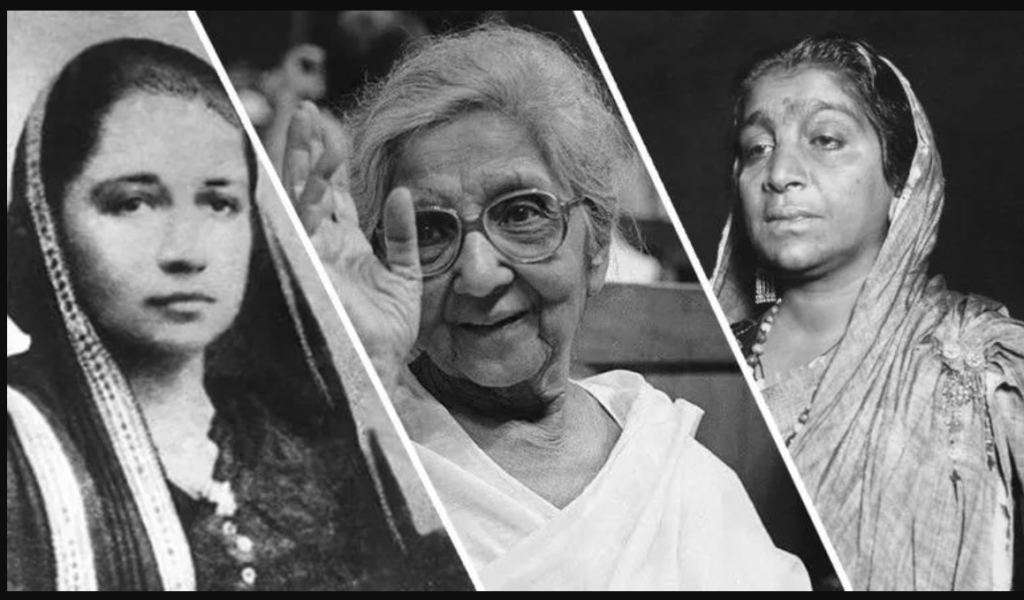Celebrate 77 years of India’s Independence with tributes to brave women like Basanti Devi, Aruna Ali, Sarojini Naidu, and more who fought for freedom.
As India commemorates its 77th year of Independence, the nation pays tribute to the courageous women who not only fought against British rule but also challenged the societal norms of their time. These remarkable women not only shaped the freedom movement but also contributed to social reform and empowerment. Let’s delve into the inspiring stories of a few of these unsung heroes.
- Women shaped India’s freedom with their courage and activism.
- These women challenged norms and empowered society and the nation.
- Their legacy lives on and inspires generations for change.
Basanti Devi (1880-1947)
Basanti Devi, a stalwart of India’s struggle for freedom, joined the freedom movement in 1921 following her husband Chittaranjan Das’s arrest. She actively participated in movements such as the Civil Disobedience Movement and the Indian National Congress Nagpur session in 1920.
Basanti Devi’s legacy extended beyond political activism as she co-founded Nari Karma Mandira, an institution dedicated to educating women. She collected funds for the Tilak Swaraj Fund and even endured imprisonment for selling Khadi.

(Basanti Devi was a stalwart of India’s struggle for freedom | Image: Twitter)
Her arrest triggered nationwide outrage. She continued her husband’s work by running the publication Bangalar Katha and played a pivotal role in the Bengal Provincial Congress. Her dedication was recognised with the prestigious Padma Vibhushan award in 1973.
Aruna Asaf Ali (1909-1996)
Aruna Asaf Ali’s tenacity and determination made her a prominent figure in India’s freedom movement. Despite facing personal challenges, including marrying outside her religion, she stood strong alongside her husband Asaf Ali, who was a notable lawyer and activist. Aruna Ali’s indomitable spirit led her to unfurl the Indian flag on August 9, an act that forced her to go underground due to the British offering a reward for her capture.

(Aruna Asaf Ali’s tenacity and determination made her a prominent figure in India’s freedom movement | Image: Twitter)
She later became Delhi’s first mayor and was associated with the Communist Party of India.
Sarojini Naidu (1879-1949)
Known as the Nightingale of India, Sarojini Naidu was not only a freedom fighter but also a prolific poet and social reformer. She co-established the Women’s Indian Association (WIA) and embarked on countrywide speaking tours to inspire women.

(Sarojini Naidu was known as the Nightingale of India | Image: Twitter)
Naidu’s leadership skills led her to become the president of the Indian National Congress in 1925. Her contributions extended beyond the freedom movement, as she served as the Governor of Agra and Awadh post-independence.
Annie Besant (1847-1933)
Annie Besant, a British citizen, dedicated herself to India’s struggle for independence after her arrival in 1893.

(Annie Besant, a British citizen, dedicated herself to India’s struggle | Image: Twitter)
She played a pivotal role in the Indian Home Rule League and served as its president. Her tireless efforts and passion for India’s sovereignty made her a revered figure in the freedom movement.
Bhikaiji Cama (1861-1936)
Bhikaiji Cama’s groundbreaking act of unfurling the Indian tricolor on foreign soil showcased her unwavering commitment to India’s cause. She participated actively in the Indian National Congress and engaged in revolutionary activities while in Europe. Her resilience, even during adversity, contributed significantly to the fight for freedom.

(Bhikaiji Cama’s groundbreaking act of unfurling the Indian tricolor on foreign soil | Image: Twitter)
These are just a few of the incredible women who demonstrated exceptional courage, determination and leadership during India’s struggle for independence. As the nation celebrates 76 years of freedom, their stories continue to inspire and remind us of the significant role women played in shaping India’s destiny. Their contributions, both on the political and social fronts, remain an integral part of India’s history and its ongoing journey towards progress and equality.
Article Credits: Republic.com
